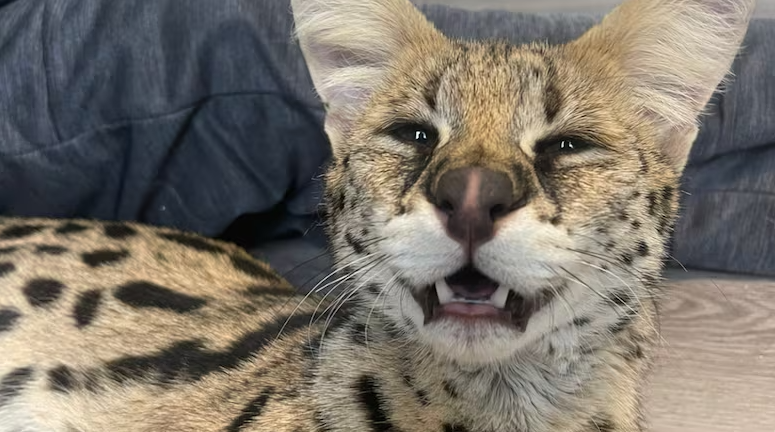Serval Owner Calls for Permits and Oversight Instead of B.C.’s Proposed Exotic Cat Ban
Liam O'Connell
7/10/20252 min read


A B.C. serval owner and breeder is pushing back against the province’s proposal to ban the breeding, sale, and future ownership of exotic cats like servals, ocelots, and European wildcats — arguing instead for a licensing and permitting system that supports responsible ownership.
Sonu De’cruze, who lives in the Central Okanagan, shares her home with Uzi, an eight-year-old serval she’s cared for since he was young. Her setup includes specially built indoor and outdoor enclosures, enrichment toys, a giant exercise wheel, and a meticulously managed diet that costs roughly $700 per month.
“It’s a massive responsibility,” said De’cruze, who hasn’t taken a vacation in years due to the level of care required. “I realize this lifestyle isn’t for everyone — but banning exotic cats entirely could do more harm than good.”
De’cruze warns the proposed ban could drive exotic cat ownership underground, making it harder for pets to receive veterinary care and leading to poorer welfare outcomes.
Under B.C.'s proposed changes, these cats would be classified as "controlled alien species," joining a list that already includes giraffes, polar bears, and jaguars. While the province hasn't named Bengal or Savannah cats specifically, De’cruze — who also breeds those — says they’re often associated with the same category and fears the impact on her small business.
"I'm sitting in limbo, just waiting to see what happens,” she said.
Breeders Want Regulation, Not Rejection
Fellow breeder Catherine Joyal echoed the sentiment, saying she supports regulation but not a blanket ban. “When raised properly, these animals can be loving and loyal companions,” she said.
The province's proposal comes in part due to past incidents. In 2019, 13 servals were seized from a breeder near Kamloops in poor living conditions. And in 2022, two servals escaped from a Vancouver Island breeder, killing a cat and several ducks before being captured — prompting public safety concerns.
Animal Advocates Support the Ban
Animal law lawyer Rebeka Breder, however, argues that no domestic setting can meet the complex needs of wild cats. “These animals are wired to roam, hunt, and live freely. Their welfare is compromised in captivity,” she said.
Breder supports expanding the ban to include other exotics like boa constrictors, while the B.C. SPCA has launched a petition calling for broad regulations across all exotic pets. The organization points to the 2022 serval escape as an example of the risk these animals pose to communities.
“They’re 40-pound predators,” said Sara Dubois, SPCA chief scientific officer. “People were afraid to let their kids walk to school.”
A Hope for Balance
De’cruze believes the province’s current approach unfairly punishes responsible owners while failing to hold negligent breeders accountable. “The people who caused the problem are walking free, and now everyone else is paying for it,” she said.
While current exotic cat owners may be allowed to keep their pets under a grandfathered permit, De’cruze hopes future ownership remains an option.
“If we can offer the same level of care to another serval after Uzi, I think we should have that choice.”
News
Stay updated with the latest BC news stories, subscribe to our newsletter today.
SUBSCRIBE
© 2025 Innovatory Labs Inc.. All rights reserved.
LINKS
